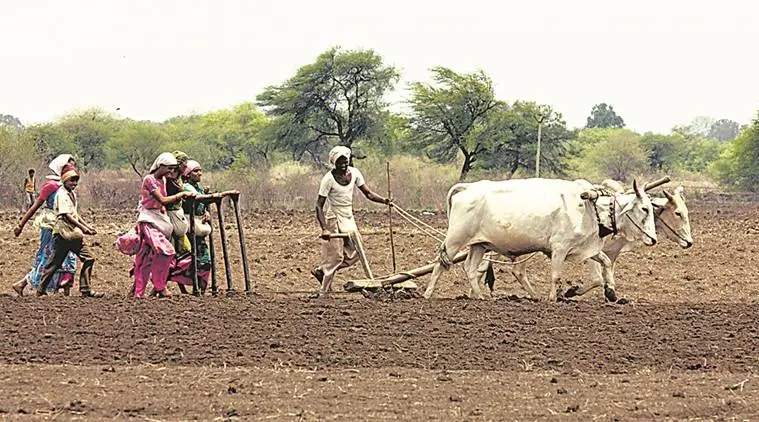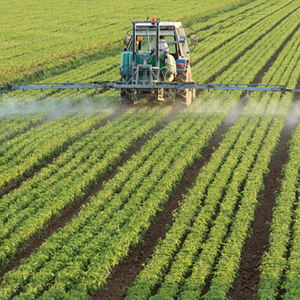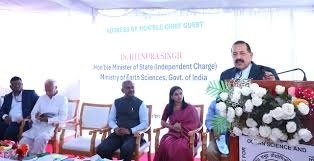Revolutionary reforms are essential to elevate the country’s agriculture sector and ensure India’s status as a global player by 2047.
Author: Laxmi Devi Aire
PANIPATH (ECONOMY INDIA ): The South Asia head of the German chemical giant, Bayer, has recently expressed serious concerns regarding the challenges in India’s agricultural sector. He stated that if India aspires to become a “developed nation” by 2047, significant reforms in the agricultural sector are essential. At present, due to outdated farming methods, India is not fully utilizing its agricultural production capacity. This could pose a major hurdle to the country’s future development.
Challenges in Indian Agriculture
The president of Bayer pointed out that due to backward technologies and traditional farming methods, Indian farmers are not reaping the full benefits of agriculture. A lack of sufficient technological advancement in farming has made India’s agricultural production less competitive on the global stage. To improve farmers’ incomes, maximize resource utilization, and enhance production capacity, it is essential to adopt cutting-edge technologies.
Appreciation of Government Efforts
However, he also acknowledged the efforts being made by the Indian government to modernize the agricultural sector. Referring to initiatives like the Pradhan Mantri Kisan Samman Nidhi (PM-KISAN) and the Pradhan Mantri Krishi Sinchai Yojana (PMKSY), he noted that these schemes are vital steps towards supporting farmers. The government’s measures to improve agricultural technology, irrigation, and crop protection show promise for improving the current situation.

Bayer’s Contribution
Bayer, a leading chemical and agricultural product company, is actively working to raise awareness among Indian farmers about modern agricultural technologies and tools. The company believes that with technological advancements, farmers’ productivity and income can be significantly improved. Bayer’s products, including pesticides, seeds, and crop protection solutions, play a key role in boosting the production capacity of Indian farmers. The president revealed that the company plans to enhance its research and development efforts in India to make agriculture more efficient and sustainable.
Suggestions for Modern Agriculture
He further suggested that farmers should embrace modern agricultural techniques such as precision farming, drone technology, and data-driven farm management. These technologies can not only increase production but also ensure optimal use of resources. He emphasized that the use of digital technology could assist farmers in gaining real-time information about their crops, receiving timely advice, and establishing direct market links.
Need for Sustainable Agriculture
He also highlighted that merely increasing production is not enough; it is equally important to focus on environmental protection and the sustainable use of resources. With the growing impacts of climate change, there is a need for farmers to adopt sustainable farming practices.
The Bayer president clearly stated that if India is to become a developed nation by 2047, massive changes in the agricultural sector are required. By abandoning outdated practices and making proper use of modern technologies and resources, India can become globally competitive and move from being an agrarian nation to a developed one. Positive outcomes in this direction can only be achieved through collaboration between the government and the private sector.
Quote “India cannot tread the path to becoming a developed nation by 2047 with backward agricultural practices. We must modernize farming, and collaboration between the government and the private sector is crucial.” – Bayer South Asia President.
This article emphasizes the importance of modernizing agriculture and technological advancements, which are essential for India’s progress in the future.

What is the Government Doing?
The Indian government has introduced several key policies and schemes aimed at modernizing and developing the agricultural sector. These initiatives focus on increasing farmers’ incomes, boosting agricultural production, and making agriculture more sustainable and competitive. Here is an overview of some important government efforts:
- Pradhan Mantri Kisan Samman Nidhi (PM-KISAN) Scheme: Under this scheme, small and marginal farmers receive direct financial assistance of ₹6,000 annually. It aims to improve farmers’ income and strengthen their financial situation in agriculture.
- Pradhan Mantri Krishi Sinchai Yojana (PMKSY): The objective of this scheme is to provide “water to every farm” through efficient irrigation facilities. It includes water conservation, management, and the promotion of micro-irrigation techniques such as drip and sprinkler systems to save water and increase production.
- Agriculture Infrastructure Fund: This scheme provides farmers with loans and subsidies for building storage facilities, cold storage units, and other agricultural infrastructure. The goal is to ensure better storage and marketing of agricultural products so that farmers can get fair prices.
- e-NAM (National Agriculture Market): This is an online portal that allows farmers to sell their products directly. It provides better access to markets and reduces the dependency on middlemen.
- Pradhan Mantri Fasal Bima Yojana (PMFBY): This crop insurance scheme provides compensation to farmers in case of crop failure due to natural calamities, pest attacks, and other risks.
- Soil Health Card Scheme: This scheme helps farmers by providing information about soil quality, which helps them decide the most suitable crops for their land and the right fertilizers to use.
- Kisan Unnati Yojana: This scheme promotes agricultural research and technological innovation to increase farmers’ productivity.
- Digital Agriculture Mission: Launched to integrate digital technologies into agriculture, using AI, blockchain, satellite imagery, and IT services to provide farmers with crucial information about crop status, weather forecasts, and market prices.
- Farmer Producer Organizations (FPOs): The government is encouraging the formation of FPOs, enabling small and marginal farmers to collectively sell agricultural products and resources.
- Agriculture Export Policy This policy aims to boost the export of agricultural products, linking the Indian agricultural sector with the global market.
These efforts by the Indian government aim to modernize agriculture and make it more competitive on a global scale, ensuring a sustainable future for farmers and the country’s agricultural sector.
(Economy India)












